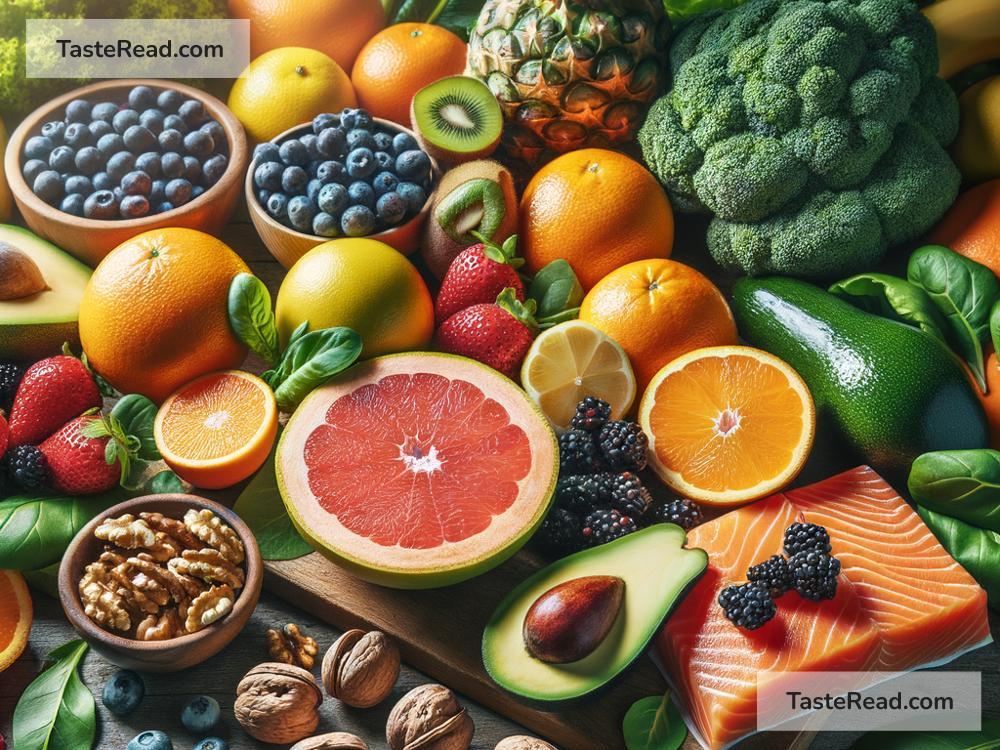Foods That Support Healthy Discs: Nourishing Your Spine for Longevity
Your spine is an incredible structure that allows you to move, bend, twist, and carry out countless daily activities. It is supported by discs, small cushions between the bones of your spine (called vertebrae) that act like shock absorbers. These discs keep your spine flexible and protect it from everyday stresses. When your discs are healthy, your spine functions smoothly, and you can move freely without pain or discomfort. But what happens when your discs aren’t getting the nutrients they need? Over time, they can weaken, causing back pain, stiffness, or even more serious issues.
The good news is, there are certain foods that promote healthy spine discs and can help you maintain a strong, flexible back for years to come. Here’s a closer look at what to eat to keep your discs happy and healthy.
Why Nutrition Matters for Spinal Discs
Spinal discs are made up of water, collagen, and a gel-like substance called proteoglycans. These components all contribute to keeping the discs hydrated, flexible, and able to absorb stress. However, factors like aging, injury, poor posture, and nutrient deficiencies can cause discs to dry out, lose their flexibility, or become damaged.
When you eat foods rich in nutrients that aid in hydration, collagen production, and inflammation control, you provide your discs with the building blocks they need for strength and repair. Let’s dive into the foods that support healthy discs.
1. Water-Rich Fruits and Vegetables
Hydration is key when it comes to spinal disc health. Your discs are made up of about 80% water! Without proper hydration, they can dry out, lose their shape, and fail to cushion your spine effectively. Water-rich foods not only help keep your discs hydrated but also supply vitamins and antioxidants to protect their overall health.
Foods to Include:
- Cucumbers: Packed with water, cucumbers are great for hydration.
- Watermelon: This juicy fruit contains not only water but also antioxidants that fight inflammation.
- Celery: Known for its high water content, celery promotes hydration.
- Oranges and Pineapple: Both fruits are rich in Vitamin C, which is essential for collagen production.
2. Protein-Rich Foods for Collagen
Collagen is one of the key proteins in your spinal discs, helping them stay flexible and strong. Eating protein-rich foods that support collagen production can improve disc health and repair damage over time.
Foods to Include:
- Eggs: These are rich in protein and also contain Vitamin D, which helps your body absorb calcium for stronger bones and discs.
- Fish: Salmon, mackerel, and tuna provide lean protein and are rich in omega-3 fatty acids that reduce inflammation.
- Beans and Lentils: Plant-based sources of protein like beans and lentils support overall disc health.
- Bone Broth: Drinking bone broth is a natural way to get collagen directly into your system.
3. Omega-3 Fatty Acids for Inflammation
Inflammation can negatively affect your spinal discs, causing pain and limiting mobility. Foods with omega-3 fatty acids help reduce inflammation and improve circulation, which promotes disc repair and health.
Foods to Include:
- Walnuts: A handful of walnuts each day offers omega-3s and other nutrients for inflammation control.
- Chia Seeds: These tiny seeds are a powerhouse of omega-3 fatty acids.
- Fatty Fish: Such as salmon, sardines, and trout—these are excellent sources of omega-3s.
4. Calcium and Magnesium for Strong Bones
Your spinal discs rely on strong vertebrae for support. Calcium and magnesium are essential minerals for bone health and play an important role in keeping your whole spine strong.
Foods to Include:
- Leafy Greens: Spinach, kale, and broccoli are rich in both calcium and magnesium.
- Dairy Products: Milk, yogurt, and cheese provide an excellent source of calcium.
- Nuts: Almonds and cashews are full of magnesium.
- Seeds: Pumpkin and sunflower seeds are great magnesium sources.
5. Vitamin D for Absorption
Vitamin D is essential for your body to absorb calcium properly. Without enough Vitamin D, even high-calcium foods won’t benefit your spine as much as they could.
Foods to Include:
- Fortified Foods: Look for cereals, orange juice, and milk with added Vitamin D.
- Egg Yolks: A natural source of Vitamin D.
- Fatty Fish: (Like the ones mentioned earlier) are also rich in Vitamin D.
6. Antioxidant-Rich Foods for Repair
Antioxidants protect your spinal discs from damage by fighting free radicals, unstable molecules that can cause wear and tear over time.
Foods to Include:
- Berries: Blueberries, strawberries, and raspberries are packed with antioxidants.
- Nuts: Especially pecans and walnuts.
- Dark Chocolate: Choose chocolate that’s at least 70% cocoa for a healthy boost.
Taking Small Steps toward Better Disc Health
Eating well doesn’t mean overhauling your entire diet overnight. You can start small by adding water-rich fruits or a handful of nuts to your daily routine. Gradually incorporate more fish, leafy greens, and antioxidant-rich foods to build a spine-friendly diet.
Healthy spinal discs don’t just mean less back pain—they also mean greater flexibility, better posture, and a more active lifestyle. Combined with regular exercise, good posture habits, and proper hydration, a nutritious diet can help you maintain strong, healthy discs throughout your life. Your spine takes care of you every day, so it’s time to return the favor—with good food and good choices!


